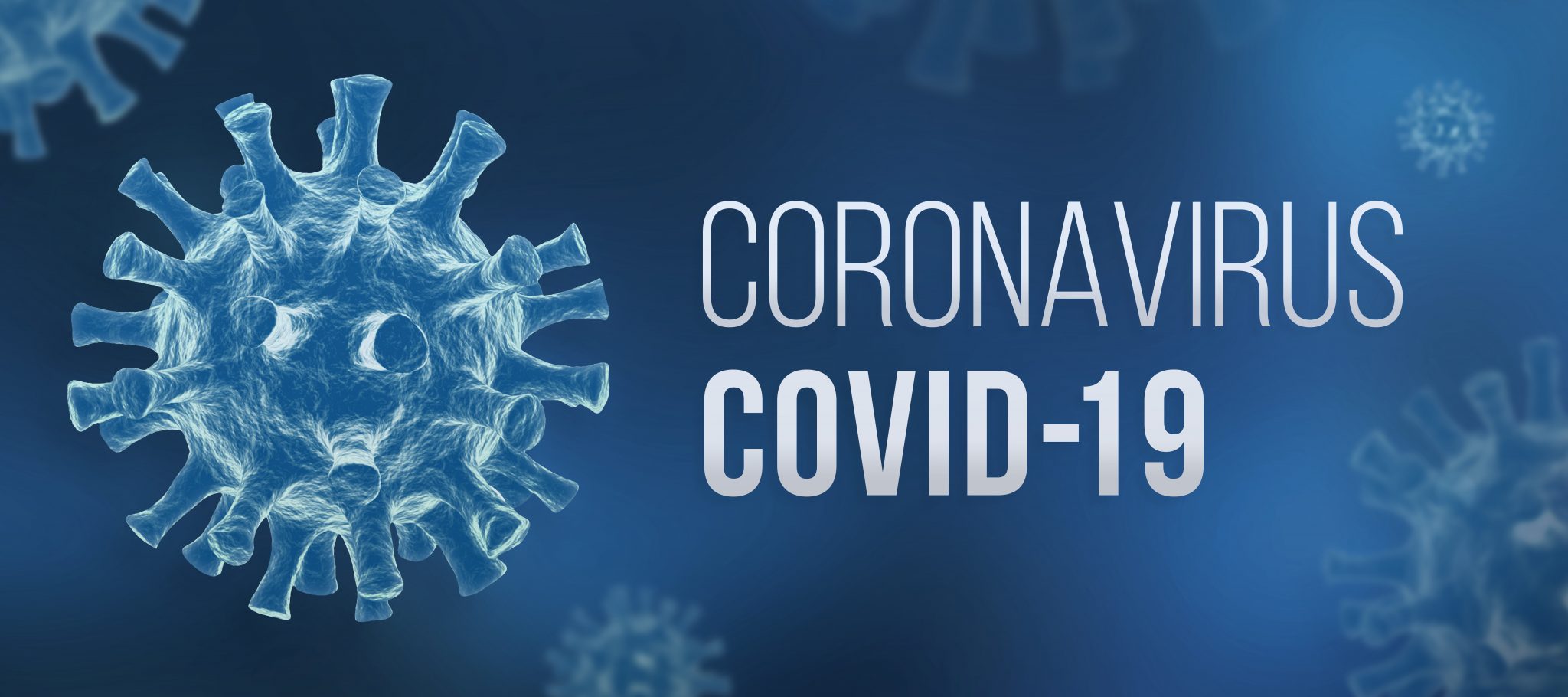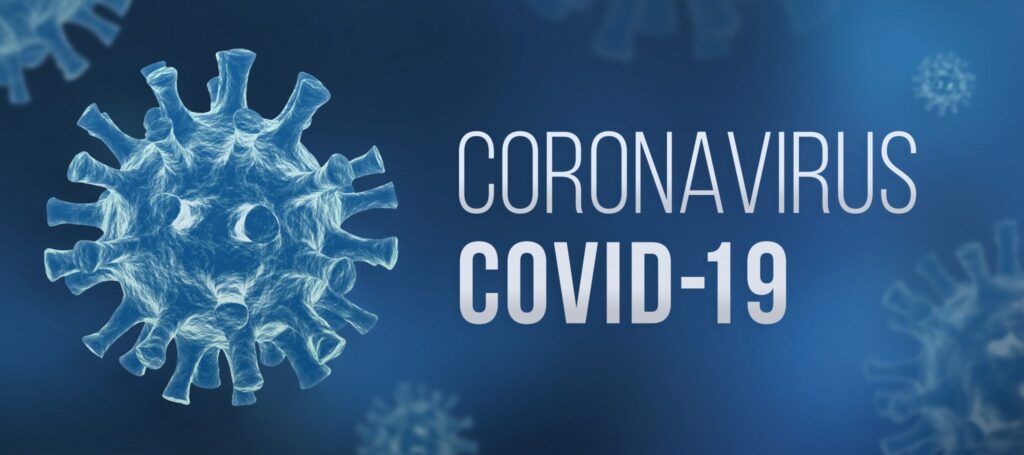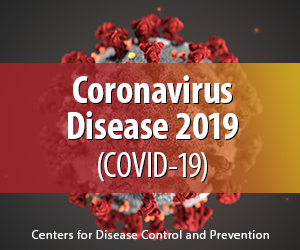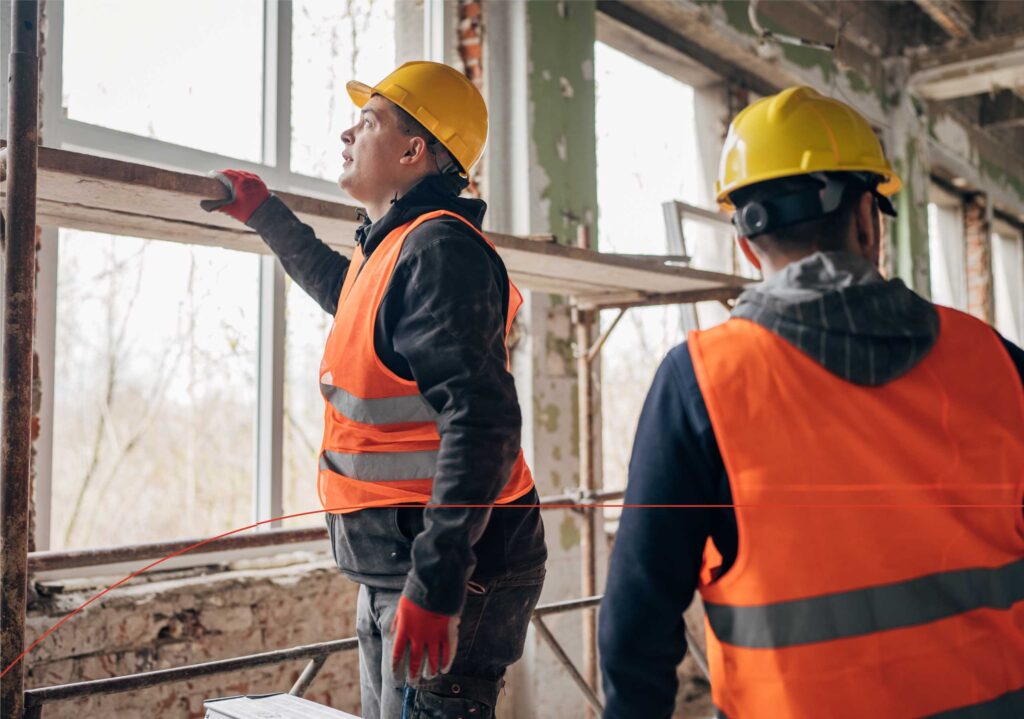Coronavirus Preparedness Resources (COVID-19)


To help our clients stay informed, Crane Agency has created a Coronavirus Preparedness Resources page to answer your most frequently asked questions. Many of our carriers have also made a variety of COVID-19 Resources available to assist clients during these uncertain times. We have included links to their websites below:
Business Insurance – COVID-19 Resources by Carrier (download)
Employee Benefits Insurance – COVID-19 Resources by Carrier (download)
Personal Insurance – COVID-19 Resources by Carrier (download)
Please visit our blog for the latest Crane Agency updates, FAQs, and additional information related to COVID-19. We have also provided many additional resources below. For specific questions about your account, please contact your Crane Agency Broker Team.
What you need to know: Take steps to care for yourself and help protect others in your home and community.
– Anyone can have mild to severe symptoms.
– Older adults and people who have severe underlying medical conditions like heart or lung disease or diabetes seem to be at higher risk for developing more serious complications from COVID-19 illness.
Watch for Symptoms: People with COVID-19 have had a wide range of symptoms reported – ranging from mild symptoms to severe illness. Symptoms may appear 2-14 days after exposure to the virus. People with these symptoms may have COVID-19:
-Fever or chills
-Cough
-Shortness of breath or difficulty breathing
-Fatigue
-Muscle or body aches
-Headache
-New loss of taste or smell
-Sore throat
-Congestion or runny nose
-Nausea or vomiting
-Diarrhea
This list does not include all possible symptoms. The CDC has also provided a “Coronavirus Self-Checker“, as a useful guide to help make decisions on when to seek testing and appropriate medical care. This tool can be found on the CDC website on the “Symptoms of Coronavirus” page and will be updated as they learn more about COVID-19.
Please consult your medical provider for any other symptoms that are severe or concerning to you. Everyone can do their part to help us respond to this emerging public health threat by following the CDC’s most recent recommendations onHow to Protect Yourself & Others.
Other Helpful Resources from the CDC:
Cases in the U.S.
Guidance Documents
Communication Resources
CDC Print Resources
COVID-19 Federal Legislation
Families First Coronavirus Response Act (FFCRA)
The Families First Coronavirus Response Act (FFCRA) took effect on April 1, 2020, and provides eligible workers with paid leave for reasons related to the coronavirus (COVID-19) pandemic. Covered employers should post notice of the FFCRA requirements in a conspicuous place on its premises. A copy of the notification is linked below, along with a link to the US Department of Labor website, which provides additional guidance on paid leave requirements related to COVID-19. We have also provided an FFCRA Compliance Bulletin, which includes frequently asked questions issued by the DOL to assist employers and employees on their responsibilities and rights under the FFCRA, as well as a resource on the US Chamber website that outlines what businesses need to know.
U.S. Department of Labor – COVID-19 and the American Workplace
U.S. Equal Employment Opportunity Commission- Coronavirus and COVID-19
US Chamber – FFCRA: What Businesses Need to Know
The Families First Coronavirus Response Act includes two new significant paid leave laws: (1) the Emergency Family and Medical Leave Expansion Act, and (2) the Emergency Paid Sick Leave Act. Both statutes address absences from work caused by the COVID-19 pandemic. Both provisions are effective April 1, 2020, through December 31, 2020.
Emergency Family and Medical Leave Expansion Act (EFMLEA)
This act creates a new form of FMLA leave covering up to 12 weeks of an eligible employee’s inability to work or telework “due to a need for leave to care for the son or daughter under 18 years of age of such employee if the school or place of care has been closed, or the child care provider of such son or daughter is unavailable, due to a public health emergency.”
Emergency Paid Sick Leave Act (EPSLA)
Employees covered under the EPSLA are entitled to paid leave for several different types of absences related to the COVID-19 pandemic:
– Is subject to a Federal, State, or local quarantine or isolation order related to COVID-19
– Has been advised by a health care provider to self-quarantine related to COVID-19
– Is experiencing COVID-19 symptoms and is seeking a medical diagnosis
– caring for an individual subject to an order described in (1) or self-quarantine as described in (2)
– Is caring for his or her child whose school or place of care is closed (or child care provider is unavailable) due to COVID-19 related reasons
– Is experiencing any other substantially similar condition specified by the U.S. Department of Health and Human Services
Due to the speed at which these laws were enacted, the US Department of Labor has created a Q&A page to address questions and provide additional guidance:
US Department of Labor – Families First Coronavirus Response Act Q&A
For the latest information, we have also included a link to the US DOL News Releases page and Blog:
US Department of Labor – News Releases
Coronavirus Aid, Relief, and Economic Security Act (CARES Act)
With a massive $2 trillion allocated for businesses, individuals, federal agencies, and state and local governments, the CARES Act is designed to distribute capital quickly and broadly. Below you will find links to additional information, along with a few attachments, that may help covered businesses access the additional resources available through the recently passed stimulus package:
US Senate Committee on Small Business & Entrepreneurship
The Small Business Owner’s Guide to the CARES Act (download)
US Chamber – Resources & Relief Info for Small Business
US Chamber – What Small Businesses Need to Know
US Chamber – Cares Act Small Business Guide & Emergency Loan Checklist
Other Helpful Resources:
Coronavirus Aid Relief and Economic Security Act (CARES) Act – Crane Agency Blog (04.08.2020)
The Families First Coronavirus Response Act (FFCRA) – Crane Agency Blog (04.08.2020)
Families First Coronavirus Response Act Q&A – Crane Agency Blog (03.31.2020)
State Quarantine and Isolation Statutes (National Conference of State Legislatures)
State Action on Coronavirus – COVID-19 Related Legislation (National Conference of State Legislatures)
COVID-19 Reopening Guidance and “Show Me Strong” Recovery Plan Microsite
This microsite includes reopening guidance for businesses, including resources at the federal, state, and local levels.
Employee Benefits COVID-19 Helpful Resources:
Many of our carriers have made available a variety of COVID-19 Resources to assist clients during these uncertain times. We have included links to their websites below:
Aetna – What You Need to Know About COVID-19
Anthem – Coronavirus Resources Center
Blue Cross Blue Shield of Illinois – Alerts & Announcements
Cigna – Coronavirus Resource Center
United Healthcare – COVID-19
Monthly Wellness Newsletter and Benefits Info Updates:
January 2021 – Crane Agency Wellness Newsletter, Benefit News & Compliance Updates
This month’s Crane Benefits Newsletter includes a number of updates including Reminders of the Importance of Focusing on Employee Mental Health, FAQ from Final Rule on Tip Regulations, COVID-19 Vaccine Coverage, an Attraction and Retention Newsletter, and Highlights of the Stimulus Bill including Special Rules for FSA’s. The FSA rules are very important to pay attention to as the Act provides temporary special rules for health and dependent care FSA’s that would give employees additional time to use these funds.
December 2020 – Crane Agency Wellness Newsletter, Benefit News & Compliance Updates
This month’s Crane Benefits Newsletter includes a number of updates including a 2021 Benefit Limit Infographic, Sample Beneficiary Update Form, Impact of a Biden Presidency on HR/Workplace topics, Ways to Manage Remote Workers & a reminder of the Catch-up Provision as it relates to OT Exempt Workers.
12/21/2020 – Emergency Stimulus Package Update
On Monday, Dec. 21, 2020, Congress passed an emergency stimulus package designed to deliver approximately $900 billion in COVID-19-related aid. Notably, the bill provides funding for unemployment benefits, small businesses, direct economic payments to individuals, vaccine distribution and rental assistance. This article provides an overview of what is included within the emergency relief bill.
November 2020 – Crane Agency Wellness Newsletter, Benefit News & Compliance Updates
This month’s Crane Benefits Newsletter includes a number of updates including A Recent Ruling on Transparency as it relates to Healthcare, Updates to Annual Limits, Ways to Stay Connected During WFH, 2021 Minimum Wage Rates, the 2020 Annual Health Survey and a final Compliance Checklist for 2021.
October 2020 – Crane Agency Wellness Newsletter, Benefit News & Compliance Updates
This month’s Crane Benefits Newsletter includes a number of updates including Tips for Open Enrollment during COVID times, Recognizing Requests for ADA Accommodation, Supporting Employee Behavioral Health, Updates to State Leave Requirements, Combating Pandemic Fatigue, Updates to DOL FAQ’s on Employee Leave Under FFCRA among others.
September 2020 – Crane Agency Wellness Newsletter, Benefit News & Compliance Updates
This month’s Crane Benefits Newsletter includes a number of updates related to IRS Guidance on Payroll Tax Deferment (which starts today for those willing to participate), Strategies to Reduce Benefits Costs, Open Enrollment Notices, ACA Pay or Play Penalties, Encouraging Employees to Take PTO and DOL Guidance on Tracking Hours for Remote Workers.
August 2020 – Crane Agency Wellness Newsletter, Benefit News & Compliance Updates
This month’s Crane Benefits Newsletter includes a number of updates related to COVID-19, Remote Working, Cholesterol Awareness, Affordability Percentages, Stress Management, FMLA Forms, & Virtual Benefit Fairs. We have also included our August Wellness Newsletter, HR Brief & Benefits Buzz.
08.11.2020 – Pandemic Relief Update
On Aug. 8, 2020, President Donald J. Trump signed an executive order and three memorandums to address pandemic relief in response to the ongoing impact of the coronavirus (COVID-19) pandemic. After ongoing negotiations for a relief package between the White House and lawmakers collapsed, the executive actions extend pandemic unemployment benefits, student loan payment deferrals, eviction protections for renters, and payroll tax cuts. The linked News Brief explains further.
July 2020 – Crane Agency Wellness Newsletter, Benefit News & Compliance Updates
There are a number of updates related to COVID-19, Returning to Work, PCORI fees, OSHA Guidance, FLSA, & FFCRA Leave included on this update. We have also included our July Wellness Newsletter, HR Brief & Benefits Buzz.
06.04.2020 – Paycheck Protection Program Flexibility Act of 2020
Congress has passed the Paycheck Protection Program Flexibility Act of 2020, which is a bill that provides borrowers with greater flexibility in spending Paycheck Protection Program funds without compromising forgiveness eligibility. The bill has been sent to President Donald Trump, who is expected to sign it into law. This In the Know article provides an overview of the bill.
June 2020 – Crane Agency Wellness Newsletter, Benefit News & Compliance Updates
Updates include Common Employment Practices Claims Arising Out of COVID-19, Guidance for handling the influx of remote work requests as offices and work sites reopen, HSA/HDHP Limits Increase for 2021, Guidance for creating and maintaining a strong company culture in the remote workplace, COVID-19 Guidance for Section 125 Mid-year Election Change Rules, Exploring options to help employees manage their chronic conditions during these uncertain times, an Employee Welcome Back Packet (which requires customization on your end to make this specific to your situation/company) & a Welcome Back to Work letter. We have also included our June Wellness Newsletter, HR Brief & Benefits Buzz.
05.11.2020 – DOL Issues Emergency Extensions to Cobra
On May 7, 2020, the Equal Employment Opportunity Commission (EEOC) issued additional answers to frequently asked questions (FAQs) about how employers should comply with the Americans with Disabilities Act (ADA) during the coronavirus / COVID-19 pandemic. The additional FAQs were added to guidance that the EEOC originally issued on March 18, 2020, and updated on April 9, 17, and 23, 2020. The attached HR Compliance Bulletin contains the EEOC’s FAQs. Due to the COVID-19 outbreak, employees may have questions about their dependent care benefits, including whether they can make changes to their pre-tax contributions. The attached Compliance Bulletin highlights key legal rules for dependent care assistance programs (DCAPs) and summarizes how the rules apply to employees impacted by the COVID-19 outbreak.
On May 1, 2020, the U.S. Department of Labor issued new model notices that group health plans may use to use to comply with COBRA notification requirements. Use of the models is not mandatory but considered to be good-faith compliance with COBRA’s content requirements. As explained in a set of answers to frequently asked questions (FAQs) the DOL also issued on May 1, 2020, the updated model notices aim to help qualified beneficiaries better understand the interactions between Medicare and COBRA. The notices can be found here: https://www.dol.gov/agencies/ebsa/laws-and-regulations/laws/cobra
Other updates include our Sample Return to Work Action Plan Discussion Guide, Post-Coronavirus Workplace Preparedness Checklist, Post-Coronavirus Workplace Preparedness Checklist, our HR Toolkit focused on Onboarding Remote Employees & a Guide to Creating a Return to Work Action Plan.
May 2020 – Crane Agency Wellness Newsletter, Benefit News & Compliance Updates
04.23.2020 – Crane Agency Benefits Info Update
Reopening after the Shutdown, HSA/HRA/FSA Expansion, EEOC Updates, Preventing Burnout, and more…
HR Tool Kit – Employers Guide to COVID-19
04.22.2020 – Benefits Accounts & High Deductible Health Plans
Flexible Spending Accounts and Health Savings Accounts
If you have an HSA or FSA, you can now purchase over-the-counter (OTC) drugs and medications without the need for a prescription. Feminine hygiene products have also been deemed qualified medical expenses and can be purchased with both HSA and FSA funds. Both are permanent changes to the eligible expenses list and include retroactive purchases made after 12/31/2019. Retailers are updating their systems so you may need to pay out-of-pocket for these expenses and file claims for reimbursement so please keep your receipts.
HDHP (HSA Medical)
The IRS announced (Notice 2020-15) that High Deductible Health Plans (HDHPs) can cover the cost of testing and treating of COVID-19 before participants have met their deductible without losing the plan’s status as an HDHP. This means individuals enrolled in an HSA that covers the cost of COVID-19 related expenses will remain eligible to make tax-advantaged contributions to their Health Savings Account (HSA).
April 2020 – Crane Agency Wellness Newsletter, Benefit News & Compliance Updates
03.27.2020 – Crane Agency Benefits Info Update
Understanding the Stimulus, Remote Work Ergonomics and Managing Remote Employees Quick Guide, Safe Grocery Shopping Tips & the FFCRA
03.25.2020 – Crane Agency Benefits Info Update
FFCRA FAQ, the CARES Act Stimulus Package, Employee Compensation and On-Boarding Remotely
03.24.2020 – Crane Agency Benefits Info Update
State Protections, IRS Guidance on Paid Leave Tax Credits, Student Loan Deferrals, and HIPPA Privacy Rule
03.21.2020 – Crane Agency BenefitsInfo Update
Anthem COVID-19 FAQ, Coronavirus Relief Laws, HIPPA and COVID-19, Tax Day, Telemedicine and a Wellness Toolkit for Mental Health
03.18.2020 – Crane Agency BenefitsInfo Update
Coronavirus Aid Package, Easing Employee Stress, Carrier Updates and FAQ’s, All Savers Healthiest You (UHC)
03.16.2020 – Crane Agency BenefitsInfo Update
OSHA Guidance on COVID-19, Relief Bill, CDC Interim COVID-19 Guidance on Gatherings, DOL FAQ’s, COVID-19 Employee Communication Letter and a WFH Guide
03/11/2020 – Crane Agency Benefits Info Update
IRS HDHPs Update, WHO Declares COVID-19 a Pandemic, DOL Guidance on COVID-19 and FMLA, Wash Your Hands, CDC FAQ and Protecting Workers’ from a Pandemic (OSHA).
Other Helpful Resources:
Anders CPAs & Advisors
EyeMed
Guardian
Lincoln Financial Group
MetLife
Mutual of Omaha
Principal
Reliance Standard
SunLife
The Hartford
The Standard
Unum
McMahon Berger, PC
Crane Agency Quality Control & Risk Management COVID-19 FAQ and Helpful Resources:
Crane Risk Management COVID-19 FAQ’s and Helpful Resources (download)
Key Recommendations for Employee Safety
Centers for Disease Control (CDC)
Provides guidance on the following questions:
- What advice should I provide to employees and school faculty on limiting the spread of COVID-19?
- What tips for keeping people safe at home?
- What can the transportation industry do to prevent the spread of COVID-19?
CDC Recommendations on How to Protect Yourself
Centers for Disease Control (CDC)
Provides guidance on the following questions:
- What are the steps that an individual can take to avoid contracting COVID-19?
- How can I protect others from COVID-19?
- When should a person wear a facemask?
- What are the latest updates on COVID-19?
- How can schools, healthcare professionals, healthcare facilities, health departments, and laborites prevent the spread of COVID-19?
The CDC has also created a “Coronavirus Self-Checker“, as a useful guide to help employees make decisions on when to seek testing and appropriate medical care.
This tool can be found on the CDC website on the “Symptoms of Coronavirus” page and will be updated as they learn more about COVID-19. Please consult your medical provider for any other symptoms that are severe or concerning to you. Everyone can do their part to help us respond to this emerging public health threat by following the CDC’s most recent recommendations on How to Protect Yourself & Others.
Employee Rights under the Families First Coronavirus Response Act (FFRCA) Poster
US Department of Labor
Provides guidance on the following questions:
- What are an employee’s paid leave entitlements?
- Which employees are eligible for the act?
- What are the qualifying reasons for leave related to COVID-19?
- How will the act be enforced?
OSHA Publication on Preparing Your Workplace for COVID-19
Occupational Safety and Health Administration (US Department of Labor)
Provides guidance on the following questions:
- How does the COVID-19 outbreak affect workplaces?
- What are the steps an employer can take to reduce exposure to COVID-19?
- Which jobs are classified as low risk, medium risk, and high risk?
- How do I protect workers living abroad or traveling internationally?
OSHA’s COVID-19 Main Webpage
Occupational Safety and Health Administration (US Department of Labor)
Provides guidance on the following questions:
- How does COVID-19 spread and which workers are at risk?
- What are some potential sources of COVID-19 exposure?
- What makes COVID-19 different from other coronaviruses?
- How is COVID-19 diagnosed and treated?
- What are the control and prevention techniques for different industries?
OSHA Guidance on Standards Applying to COVID-19
Occupational Safety and Health Administration (US Department of Labor)
Provides guidance on the following questions:
- Which federal OSHA standards apply to protect employees from COVID-19?
- Which state OSHA standards apply to protect employees from COVID-19?
- What are the workers’ rights and responsibilities in relation to COVID-19?
COVID-19 and the American Workplace
United States Department of Labor
Provides guidance on the following questions:
- What is the Families First Coronavirus Response Act (FFCRA)?
- How does the FFCRA apply to my business?
- How does the COVID-19 outbreak intersect with the Fair Labor Standards Act (FLSA)?
- How does COVID-19 intersect with the Family and Medical Leave Act (FMLCA)?
COVID-19 Sample Jobsite Safety Plan
National Association of Home Builders
Provides guidance on the following questions:
- What are the responsibilities of construction managers and supervisors regarding COVID-19?
- What are the responsibilities of construction employees regarding COVID-19?
- What are the protective measures that should be taken at a job site?
- What steps should be taken to clean and disinfect a job site?
- What are the steps that should be taken if an employee tests positive for COVID-10?
- What are the steps that should be taken if an employee has close contact with an individual who tests positive for COVID-19?
Daily Questionnaire for Jobsite Employees and Visitors
Missouri Chapter – The Construction Association
Provides guidance on the following question (Scroll down to the “Daily Questionnaire” on the left)
- What form can I give to employees and visitors entering a job site that covers their potential exposure to COVID-19?
Disaster Loan Assistance / COVID-19 Economic Injury Disaster Loan Application
US Small Business Administration
Provides guidance on the following question:
- Where can I get information on COVID -19 disaster loan assistance and the application?
Disaster Information Management Research Center Database – Disaster Lit®
National Institute of Health and National Library of Medicine
Provides guidance on the following question:
- Where can I find a database of information on COVID-19 and other national disasters?
- Where can I get information on the latest research and fact sheets?
Missouri Department of Health and Senior Services
MO Department of Labor (Missouri COVID -19 information hotline: 877-435-8411)
Provides guidance on the following question:
- Where can I get information on Missouri COVID-19 test sites?
COVID-19 FAQ’s for Business & Workers
Department of Labor & Industrial Relations
Provides guidance on the following questions:
- Where can I get guidance on Federal Legislation impacting an individual’s situation at work?
- Where can I get information about unemployment for my business?
- Where can I get information about unemployment for my employees?
- Where can I get information about Workers’ Compensation?
- Where can I get information about discrimination?
Mine Safety and Health Administration Response to COVID -19
US Department of Labor (Mine Safety & Health Administration – MSHA)
Provides guidance on the following questions:
- What should mine operators and miners do?
- How does this affect employee training requirements?
Crane Agency Novel Coronavirus COVID-19 FAQ
Crane Agency Blog
Provides guidance on the following questions:
- What do insurance policies cover regard COVID-19?
- What will my property insurance coverage provide?
- What will my general liability, umbrella, or excess liability coverage provide?
- What will my pollution/environmental policy cover?
- What will my workers’ compensation policy cover?
- What other policies might respond?
- What are the non-insurance issues I should consider?
Crane Agency OSHA Guidance on Preparing Workplaces for COVID-19
Crane Agency Blog
Provides guidance on the following questions:
- Where can I find guidance on Preparing Workplaces for COVID-19?
- Where can I find additional information on Health & Safety Topics related to COVID-19?
National Council on Compensation Insurance (NCCI)
Impact of COVID-19 on Workers’ Compensation Insurance (Video)
NCCI and the Insurance Information Institute (Triple-I) held a live webinar on the impact of COVID-19 and workers compensation. Experts discussed top-of-mind issues and reviewed important tools and resources that support informed decision-making for the industry. View the video below to see highlights from the webinar.
COVID-19 and Workers’ Compensation: What You Need to Know
NCCI Frequently Asked Questions (FAQs)
NCCI – Workers’ Compensation Legislative Activity
NCCI Workers’ Compensation Insights – What’s Trending
Occupational Safety and Health Association (OSHA)
OSHA has also created a webpage on the US Department of Labor website with information for workers and employers about the evolving coronavirus outbreak. The CDC has provided educational materials and interim guidance for Businesses and Families on their website. Recommended strategies for employers to use now:
Actively encourage sick employees to stay home
- Employees who have symptoms of acute respiratory illness are recommended to stay home and not come to work until they are free of fever (100.4° F [37.8° C] or greater using an oral thermometer), signs of a fever, and any other symptoms for at least 24 hours, without the use of fever-reducing or other symptom-altering medicines (e.g. cough suppressants). Employees should notify their supervisor and stay home if they are sick.
- Ensure that your sick leave policies are flexible and consistent with public health guidance and that employees are aware of these policies.
- Talk with companies that provide your business with temporary employees about the importance of sick employees staying home and encourage them to develop non-punitive leave policies.
- Do not require a healthcare provider’s note for employees who are sick with acute respiratory illness to validate their illness or to return to work, as healthcare provider offices and medical facilities may be extremely busy and not able to provide such documentation in a timely way.
- Employers should maintain flexible policies that permit employees to stay home to care for a sick family member. Employers should be aware that more employees may need to stay at home to care for sick children or other sick family members than is usual.
Separate sick employees
- CDC recommends that employees who appear to have acute respiratory illness symptoms (i.e. cough, shortness of breath) upon arrival to work or become sick during the day should be separated from other employees and be sent home immediately. Sick employees should cover their noses and mouths with a tissue when coughing or sneezing (or an elbow or shoulder if no tissue is available).
Emphasize staying home when sick, respiratory etiquette and hand hygiene by all employees
- Place posters that encourage staying home when sick, cough and sneeze etiquette, and hand hygiene at the entrance to your workplace and in other work areas where they are likely to be seen.
- Provide tissues and no-touch disposal receptacles for use by employees.
- Instruct employees to clean their hands often with an alcohol-based hand sanitizer that contains at least 60-95% alcohol, or wash their hands with soap and water for at least 20 seconds. Soap and water should be used preferentially if hands are visibly dirty.
- Provide soap and water and alcohol-based hand rubs in the workplace. Ensure that adequate supplies are maintained. Place hand rubs in multiple locations or in conference rooms to encourage hand hygiene.
- Visit the coughing and sneezing etiquette and clean hands webpage for more information.
Perform routine environmental cleaning
- Routinely clean all frequently touched surfaces in the workplace, such as workstations, countertops, and doorknobs. Use the cleaning agents that are usually used in these areas and follow the directions on the label.
- No additional disinfection beyond routine cleaning is recommended at this time.
Provide disposable wipes so that commonly used surfaces (for example, doorknobs, keyboards, remote controls, desks) can be wiped down by employees before each use.
Advise employees before traveling to take certain steps
- Check the CDC’s Traveler’s Health Notices for the latest guidance and recommendations for each country to which you will travel. Specific travel information for travelers going to and returning from China, and information for aircrew, can be found on the CDC website.
- Advise employees to check themselves for symptoms of acute respiratory illness before starting travel and notify their supervisor and stay home if they are sick.
- Ensure employees who become sick while traveling or on temporary assignment understand that they should notify their supervisor and should promptly call a healthcare provider for advice if needed.
- If outside the United States, sick employees should follow your company’s policy for obtaining medical care or contact a healthcare provider or overseas medical assistance company to assist them with finding an appropriate healthcare provider in that country. A U.S. consular officer can help locate healthcare services. However, U.S. embassies, consulates, and military facilities do not have the legal authority, capability, and resources to evacuate or give medicines, vaccines, or medical care to private U.S. citizens overseas.
Additional Measures in Response to Currently Occurring Sporadic Importations of the COVID-19
- Employees who are well but who have a sick family member at home with COVID-19 should notify their supervisor and refer to CDC guidance for how to conduct a risk assessment of their potential exposure.
- If an employee is confirmed to have COVID-19, employers should inform fellow employees of their possible exposure to COVID-19 in the workplace but maintain confidentiality as required by the Americans with Disabilities Act (ADA). Employees exposed to a co-worker with confirmed COVID-19 should refer to CDC guidance for how to conduct a risk assessment of their potential exposure.
Other Helpful Resources:
Construction Risk Insights – Protecting Your Workers From Coronavirus (download)
OSHA Cornerstones – Q1 2020 (download)
OSHA Guidance on COVID-19 (download)
Risk Insights – Force Majeure and Coronavirus (download)
Risk Insights – Protecting Workers from Coronavirus (download)
State and Local Websites:
State Health Department Directory – CDC
National Directory of Local Health Departments
Missouri Department of Health & Senior Services
STLOUIS-MO GOV (St. Louis City)
Springfield – Greene County Health
Illinois Department of Public Health
National Websites:
World Health Organization Website
National Institutes of Health – COVID-19 Landing Page
National Library of Medicine Database
Includes webinars and further instructions on a wide variety of topics
National Retail Federation – Coronavirus Resources for Retailers
US Department of Education COVID-19 Landing Page
US Department of Labor – COVID-19 and the American Workplace
US National Library of Medicine – Database for Disaster Medicine and Public Health
US Food & Drug Coronavirus Disease 2019 (COVID-19) Landing Page
We will continue to monitor current events, and provide updates as they become available. For the latest information, please visit the Crane Agency Blog and follow us on LinkedIn, Twitter and Facebook. As with any developing situation please consult local and governmental health agencies for the newest developments.
Crane Agency Coronavirus Preparedness Archive
Stay At Home Guidance





